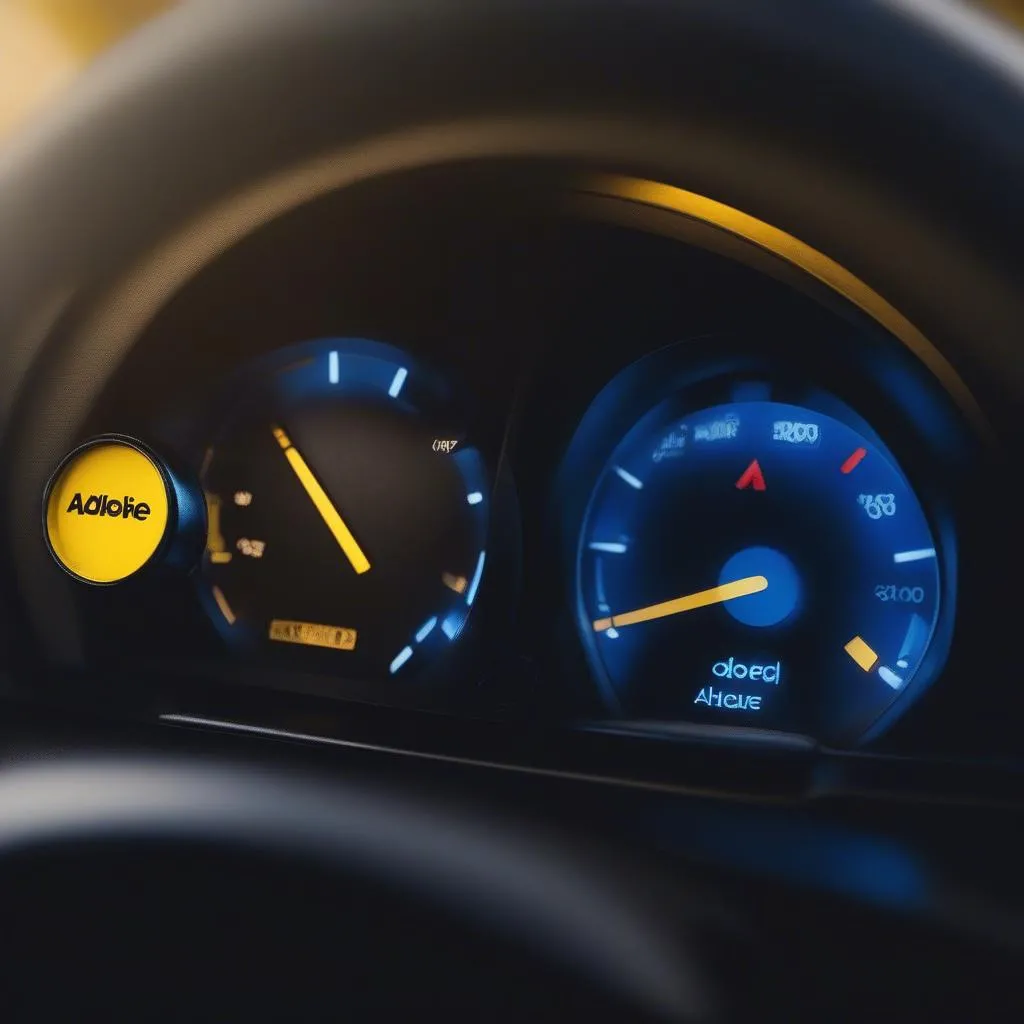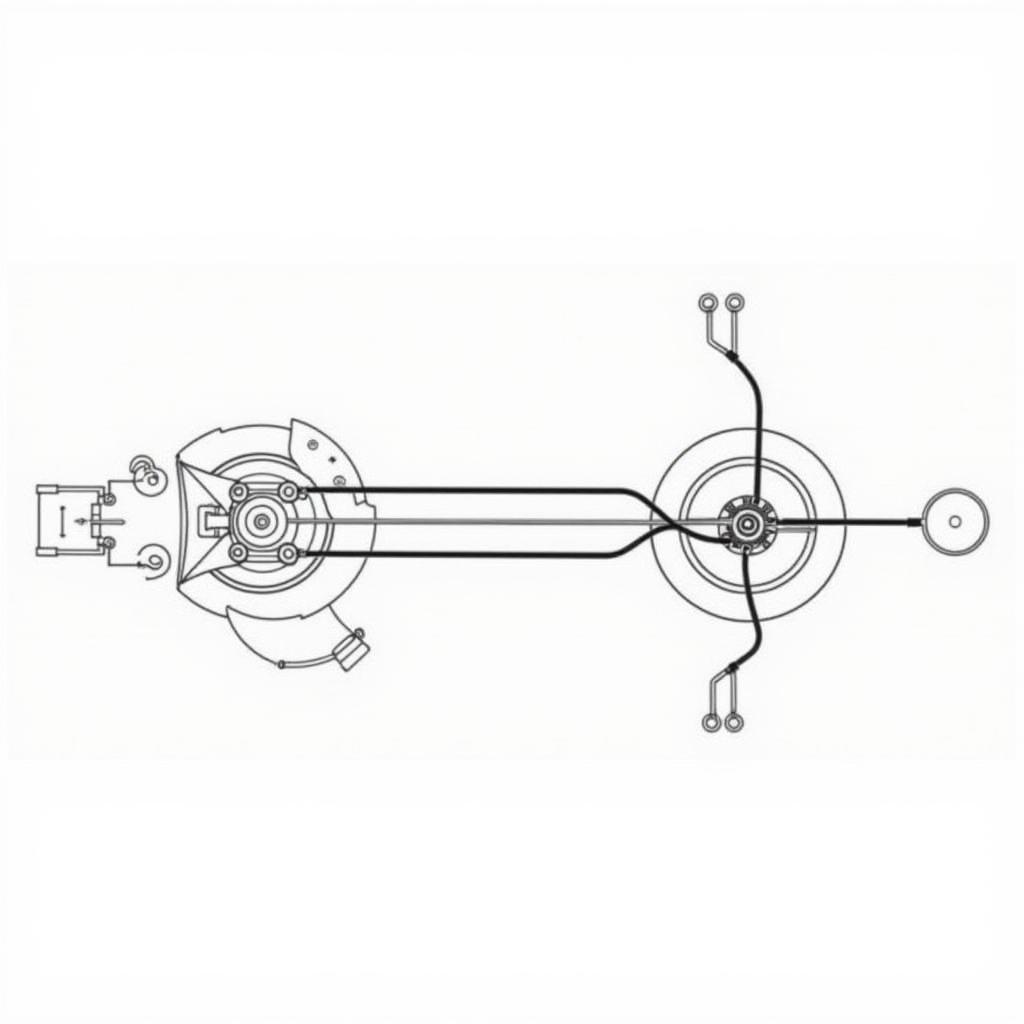If your 2002 Nissan Frontier’s brake warning light is staring you down every time you turn the ignition, you’re not alone. This is a common issue for this model year, and luckily, it’s usually not a sign of a catastrophic failure. However, it’s crucial to address this warning light promptly, as it signifies a problem within your braking system that could compromise your safety on the road. This article will guide you through the possible causes and solutions for a perpetually illuminated brake warning light in your 2002 Nissan Frontier.
Understanding Your Brake Warning Light
Your Frontier’s brake warning light is designed to illuminate for a few seconds when you turn the ignition to the “ON” position. This is normal and simply indicates that the system is running a self-check. However, if the light remains on after the initial check, or illuminates while driving, it’s signaling a problem that needs your attention.
Common Culprits Behind the Glowing Light
There are several reasons why your 2002 Nissan Frontier’s brake warning light might be stuck in the “on” position. Let’s break down the most common culprits:
1. Low Brake Fluid Level: The Usual Suspect
The most frequent offender for a persistent brake warning light is low brake fluid. Brake fluid is the lifeblood of your braking system, transmitting the force from your foot on the pedal to the brake calipers, ultimately stopping your vehicle.
How to Check:
- Locate the brake fluid reservoir under the hood. It’s a small, translucent container with a black cap.
- Check the fluid level. It should be between the “MIN” and “MAX” lines marked on the reservoir.
The Fix:
If the fluid level is low, carefully top it off with the correct DOT 3 or DOT 4 brake fluid, as recommended in your owner’s manual. If you’re frequently adding brake fluid, you likely have a leak that requires immediate professional attention.
2. Worn Brake Pads: Time for a Replacement
Brake pads are designed to wear down over time. When they become too thin, the brake warning light will illuminate to alert you that it’s time for a change.
How to Check:
Inspect your brake pads through the spaces between the wheel spokes. You’ll need a flashlight for optimal visibility. If the pads are thinner than ¼ inch, it’s replacement time.
The Fix:
Replace your brake pads. While this can be a DIY job for those comfortable with a bit of wrenching, it’s generally recommended to have a professional handle brake pad replacement to ensure proper installation and safety.
3. Faulty Brake Light Switch: The Silent Saboteur
The brake light switch, located behind your brake pedal, is responsible for activating your brake lights when you press the pedal. A malfunctioning switch can confuse your vehicle’s computer, leading to a lit brake warning light.
How to Check:
If your brake lights aren’t working correctly, this could indicate a faulty brake light switch.
The Fix:
Replacing a brake light switch is relatively inexpensive and straightforward. However, if you’re not comfortable working under the dash, it’s best left to the professionals.
4. ABS Issues: Consulting the Experts
While less common, a problem with your Anti-lock Braking System (ABS) can also trigger the brake warning light. Diagnosing ABS issues requires specialized equipment and expertise.
The Fix:
If you suspect an ABS problem, take your Frontier to a qualified mechanic specializing in Nissan vehicles. They have the tools and knowledge to diagnose and repair ABS issues safely and effectively.
Don’t Ignore the Warning
A glowing brake warning light is never something to disregard. While the cause might be a minor issue like low brake fluid, it could also point to a more serious problem requiring immediate attention.
Remember: Addressing brake problems promptly keeps you and your passengers safe on the road.
FAQs
Q: Can I drive my 2002 Nissan Frontier with the brake warning light on?
A: While you might be able to drive a short distance, it’s strongly discouraged. Driving with a brake problem puts your safety at risk.
Q: How much does it cost to fix a brake warning light?
A: The cost varies depending on the underlying cause. A simple brake fluid top-off is inexpensive, while brake pad or ABS repairs can be more costly.
Q: How often should I check my brake fluid level?
A: It’s good practice to check your brake fluid level at least once a month and before any long trips.


